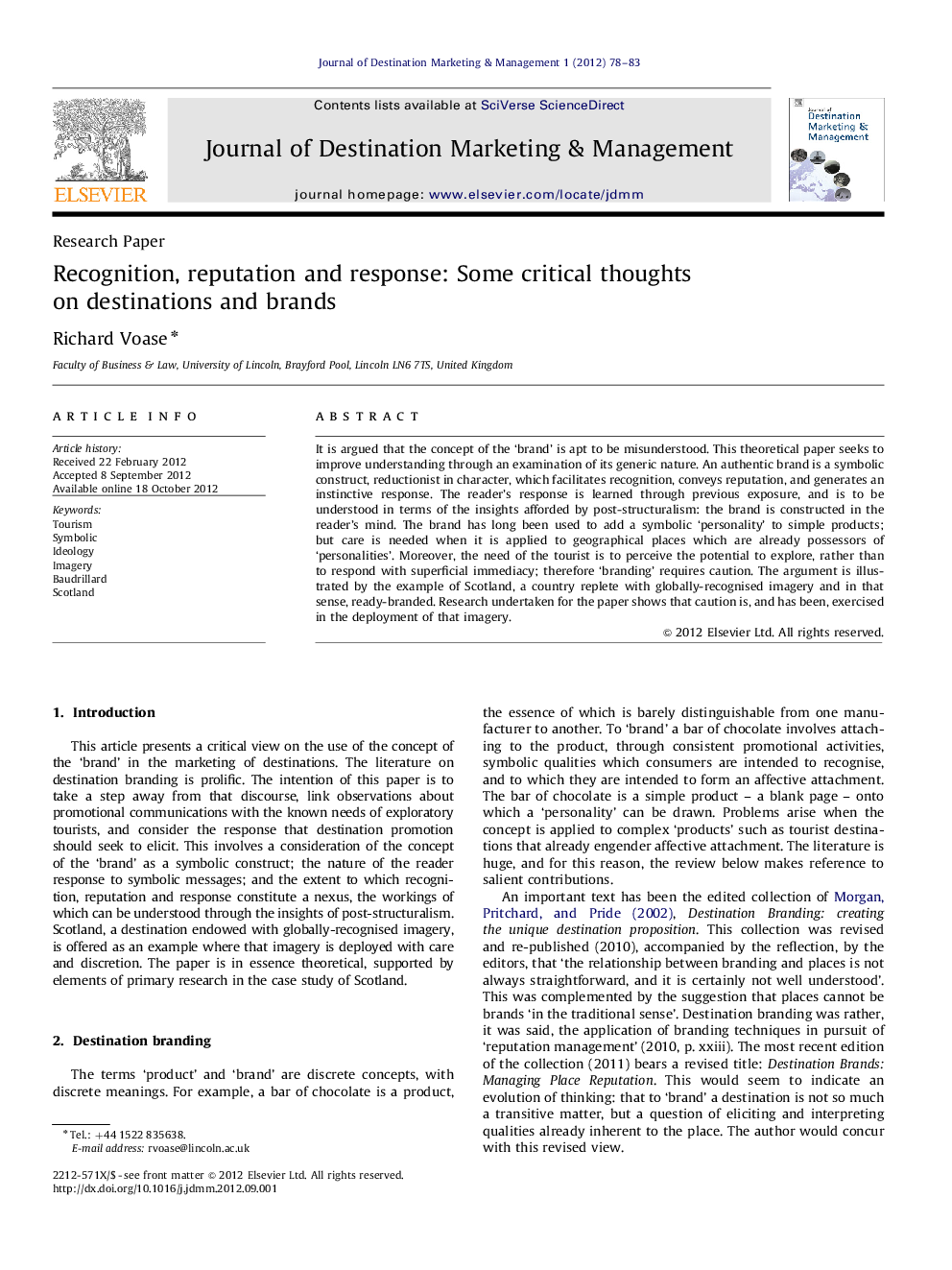| Article ID | Journal | Published Year | Pages | File Type |
|---|---|---|---|---|
| 1011127 | Journal of Destination Marketing & Management | 2012 | 6 Pages |
It is argued that the concept of the ‘brand’ is apt to be misunderstood. This theoretical paper seeks to improve understanding through an examination of its generic nature. An authentic brand is a symbolic construct, reductionist in character, which facilitates recognition, conveys reputation, and generates an instinctive response. The reader’s response is learned through previous exposure, and is to be understood in terms of the insights afforded by post-structuralism: the brand is constructed in the reader’s mind. The brand has long been used to add a symbolic ‘personality’ to simple products; but care is needed when it is applied to geographical places which are already possessors of ‘personalities’. Moreover, the need of the tourist is to perceive the potential to explore, rather than to respond with superficial immediacy; therefore ‘branding’ requires caution. The argument is illustrated by the example of Scotland, a country replete with globally-recognised imagery and in that sense, ready-branded. Research undertaken for the paper shows that caution is, and has been, exercised in the deployment of that imagery.
► A brand is a symbolic construct that facilitates recognition and reputation. ► Reader response is rapid and unconscious, learned through prior exposure. ► The brand works by diverting attention from essence to connotation. ► To ‘brand’ a destination is to risk occlusion of the essences that attract. ► Scotland is aware of these risks, deploying its brand assets with discretion.
